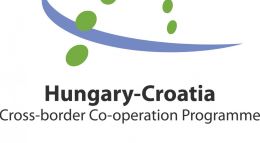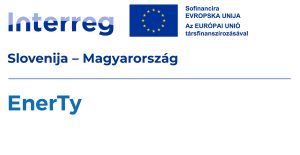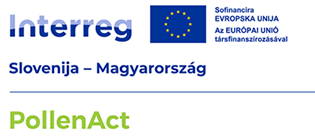Running projects
LEEAN-CET – Local Energy and Environment Action Networks for Clean Energy Transition in Central and Southeast Europe
- Project title: Local Energy and Environment Action Networks for Clean Energy Transition in Central and Southeast Europe
- Acronym: LEEAN-CET
- Project ID: LIFE24-CET-LEEAN-CET (101214119)
- Programme: LIFE Programme – Clean Energy Transition sub-programme
- Call: LIFE-2024-CET-LOCAL
- Duration: (01.06.2025 – 31.05.2028) 36 months
- EU co-funding rate: 95%
- Coordinator: EnEffect – Center for Energy Efficiency (Bulgaria)
- Hungarian partner: IMRO-DDKK Environmental Nonprofit Ltd.
- IMRO-DDKK budget: €154,336.80 (EU contribution: €146,619.96)
- Total project budget: €1,592,165.35
Project Objectives
The overall aim of LEEAN-CET is to strengthen the capacities of local and regional authorities across Central and Southeast Europe to plan and implement clean energy transition measures, with a special focus on small and medium-sized municipalities, rural areas, and carbon-intensive regions. By introducing the European Energy Award (eea) methodology, the project supports the development of integrated energy management systems, local climate and energy strategies, and investment concepts to advance the clean energy transition.
Main Activities
- Adapting and implementing the eea methodology in six countries, including Hungary
- Developing local energy and climate action plans in at least 30 municipalities
- Training more than 300 municipal experts
- Preparing investment concepts worth at least €60 million
- Applying innovative stakeholder engagement and citizen participation strategies
Project Partnership
The project involves 10 partner organisations from Bulgaria, Hungary, Bosnia and Herzegovina, Croatia, Slovenia, Ukraine, Germany, France, and Austria.
Role of the Hungarian Partner
IMRO-DDKK Nonprofit Ltd. is responsible for supporting Hungarian municipalities in the development of their clean energy transition plans, organising national training activities, and introducing the eea methodology and tools at the local level.

GeoBuilding – Geothermal Energy for a Sustainable Future
The GeoBuilding project aims to promote the sustainable utilization of shallow geothermal energy and to support the energy refurbishment of public buildings in the Hungarian–Croatian border region. Within the framework of the initiative, a methodological guide will be developed, preparatory technical documentation for 20 public buildings will be prepared, and three demonstration investments will be implemented. In addition, the project will establish an AI-supported Virtual One-Stop-Shop (vOSS) system, providing municipalities and citizens with quick and accessible technical, legal, and financial information.
Administrative information:
- Programme: Interreg VI-A Hungary–Croatia Cooperation Programme 2021–2027
- Funding: Co-financed by the European Regional Development Fund
- Project title: Fostering ground source geothermal energy based energy refurbishments in the border area
- Project ID: HUHR/2403/GeoBuilding/2.1W/001
- Acronym: GeoBuilding
- Lead Partner: University of Pécs
- Project Partners:
- Regionalna energetska agencija Sjever (Croatia)
- Međimurska energetska agencija d.o.o. (Croatia)
- IMRO-DDKK Nonprofit Ltd. (Hungary)
- VIDRA – Regional Development Agency of Virovitica-Podravina County (Croatia)
- City of Koprivnica (Croatia)
- Međimurje County (Croatia)
- Energy Institute Hrvoje Požar (Croatia)
- Duration: 1 Sept 2025 – 31 August 2029 (48 months)
- Total budget: EUR 2,124,999.36
- ERDF contribution: EUR 1,699,999.48
- National co-financing: EUR 159,616.68
- Own contribution: EUR 265,383.20
In the long term, GeoBuilding contributes to strengthening energy independence, replacing fossil fuels, and creating a sustainable, low-carbon future in the border region.

PROJECT TITLE: Cross-border efforts to prevent and eliminate energy poverty
ACRONYM: EnerTy
Project duration: 24 months (01.12.2023 – 01.12.2025)
The common challenge addressed by the project through cross-border cooperation is to improve the knowledge and awareness of decision-makers and to increase cooperation between decision-makers and end users in the field of prevention and elimination of household energy poverty.
Around 13% of households in the programme area face energy poverty, consequently linking energy poverty to the risk of social exclusion. The programme area has also recently experienced a rise in energy prices, which further contributes to the problem of citizen’s energy poverty. Therefore, it is necessary to establish a realistic baseline and solutions for energy poverty: to obtain data on the ground and identify the level of households already experiencing energy poverty and those who will soon experience it. Energy poverty is a multidimensional problem and important challenge, which needs to be addressed by the key actors and decision-makers who can take concrete action. On the other hand, it is necessary to provide them with a starting point for action and to indicate possible solutions.
The project will contribute to reducing energy poverty through activities aimed at improving energy efficiency and the use of renewable energy sources in households.
PROJECT PARTNERS:
- Local energy agency Pomurje (lead partner), Slovenia
- E-institute, Institute for Comprehensive Development Solutions, Slovenia
- IMRO-DDKK Nonprofit Kft., Hungary
- West Pannon Regional and Economic Development Public Nonprofit Ltd, Hungary
The project is co-financed by the European Regional Development Fund (ERDF) under the Cooperation Programme Interreg VI-A Slovenia-Hungary.

PROJECT TITLE: ESINERGY – Empowerment of the stakeholders in the implementation of the Directive on the promotion of the use of energy from renewable sources in term of energy storages and energy networks stability
Start Date: 01/01/2024
End Date: 30/06/2026
Total Budget in €: 2.508.094,99
Interreg Budget in €: 2.006.475,99
Programme: Danube Region Programme
Programme Priority: A greener, low-carbon Danube Region
Programme Specific Objective 2.1: Support greening the energy and transport sectors in the Danube Region by enhancing the integration of renewable energy sources Lead Partner Organisation: Local energy agency Pomurje (Slovenia)
Vezető Partner: Local energy agency Pomurje (Slovenia)
ESINERGY project aims to solve one of the key issues in modern energy technology, this is to manage the imbalance between the generated power and the load into the electrical network, which is not adequate for the forthcoming needs such as rising consumption, energy demand etc. Project will introduce the pilot approaches to reduce the peak loads directly in electrical networks, so that the producers could use the energy for own purposes (heat pumps, energy storages, charging stations, energy communities which can balance quite well differences of generation and demand) and support self-supply. Afterwards, the policy planning referring to peak loads will be improved through transnational strategy so that the measures could be replicated in other areas.

PROJECT TITLE: NRGCOM – Creating appropriate operational conditions for renewable energy communities in the Danube Region
Project website: https://interreg-danube.eu/projects/nrgcom
Start Date: 01/01/2024
End Date: 30/06/2026
Total Budget in €: 2.533.052,77
Total Interreg funding: 2.026.442,18 EUR
Programme: Danube Region Programme
Funding programme: Interreg Danube Region Programme
Programme Specific Objective 2.1: Support greening the energy and transport sectors in the Danube Region by enhancing the integration of renewable energy sources
Lead Partner Organisation: South Transdanubian Regional Innovation Agency – Hungary
The overall goal of NRGCOM is to enhance the spread of energy communities by creating an appropriate environment for their proper functioning in the Danube Region.
The NRGCOM project builds on three specific objectives (SO) which are the following:
- Initiating the establishment of the proper legal, operational and social environment for RECs strategy (SO1)
- Raising awareness and encouraging society to create or join energy communities (SO2)
- Enhancing production and use of renewables through pilot testing in potential and existing RECs (SO3)

PROJECT TITLE: Preservation of the cross-border region’s biodiversity and natural environment through the implementation of conservation and awareness-raising measures aimed at protecting wild pollinators and their natural habitats.
Project acronym: PollenAct
Project duration: 01.07.2024. – 31.12.2025. (30 months)
General objective of the project: Preserving the biodiversity of the Pannonian Plain amidst accelerating climate change and increasing human pressure on natural resources. The project highlights the importance of measures to protect endangered wild pollinators. By developing a strategy and implementing pilot actions based on natural resources (such as multifunctional gardens), we promote the ecological status and connectivity of the cross-border area. Raising awareness among target groups paves the way towards a more sustainable lifestyle.
Project partners:
- Research and Educational centre Mansion Rakičan (Lead partner)
- Biotechnological School Rakičan
- Zala Regional Development Agency Non-profit Ltd.
- IMRO-DDKK Nonprofit Ltd.
The project is co-financed by the European Regional Development Fund (ERDF) under the Cooperation Programme Interreg VI-A Slovenia-Hungary.

